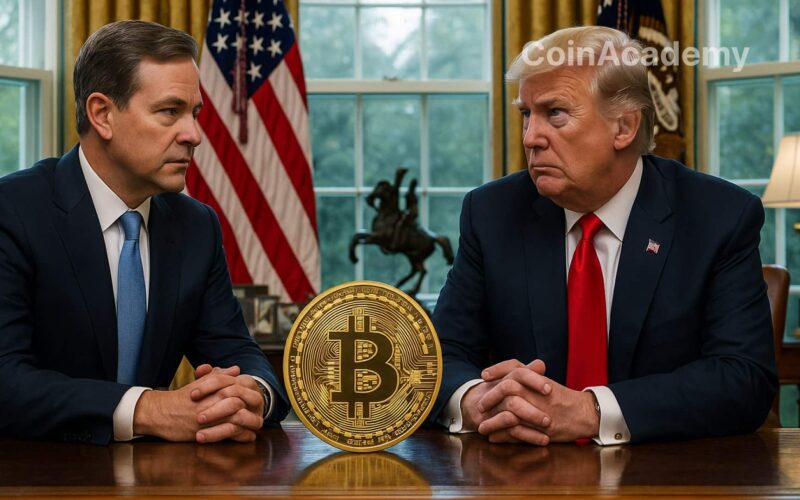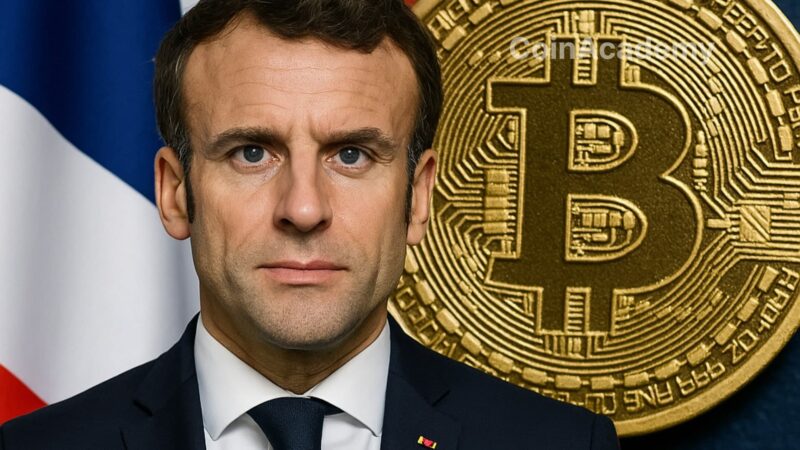Scott Bessent, the US Treasury secretary, initially announced that the strategic Bitcoin reserve would remain limited to the $15-20 billion seized, before reconsidering and mentioning future budget-neutral purchases.
This change occurred as Bitcoin had just hit a record of $124,000, only to drop to $118,000 following higher-than-expected US PPI, dampening hopes of rate cuts.
The prospect of massive purchases by the United States reignites speculation about a national strategy to make Bitcoin a strategic asset, comparable to gold.
Are the United States Really Considering Bitcoin Purchases?
The scenario seemed settled: no new Bitcoin acquisitions for the United States. But a few hours after dampening investor enthusiasm, Treasury Secretary Scott Bessent made an unexpected turn, hinting that Uncle Sam could still strengthen its BTC reserves.
In the morning, Bessent stated that the Strategic Bitcoin Reserve (SBR) would be limited to the $15 to $20 billion already held by the government, mostly from judicial seizures. No additional purchases were on the agenda at that time.
In the evening, there was a radical change in tone: the Treasury is now “committed to exploring budget-neutral pathways to acquire more Bitcoin and expand the reserve”.
A Turnaround Impacting the Market
This statement carries weight in a context where Bitcoin reached a new all-time high of $124,000 overnight before falling around $118,000 at the time of the announcement.
The drop was accelerated by a higher-than-expected American Producer Price Index (PPI), dampening hopes of a Fed rate cut as early as September. The result: a suddenly nervous crypto market where every word from Washington carries weight.
This change in stance by Bessent comes a few months after the signing, in March, by Donald Trump, of an executive order creating the Strategic Bitcoin Reserve. An initiative that Bessent has long defended, but which seemed to be put on hold.
Behind the Scenes of the Strategic Reserve
The SBR currently relies on BTC confiscated by the justice system, a treasure that is sometimes underestimated but already places the United States among the world’s largest Bitcoin holders.
Bessent clarifies that these seized funds would only be a “foundation”, implying that purchases on the market could complement them. All this, without burdening the federal budget, a crucial condition to politically pass the measure.
This signal could reignite speculation about an American strategy aiming to make Bitcoin a strategic asset, similar to gold in the past.
A Clear Message to the Global Market
If this turnaround is confirmed, the United States could send a powerful message: not only is Bitcoin recognized as a strategic asset, but it is significant enough to be accumulated by a state in a budget-neutral framework.
In a market where institutional announcements can trigger buying waves, the mere prospect of “Bitcoin hunting” by Washington could become a bullish catalyst.
The ball is now in the Treasury’s court. And in the market, one thing is certain: when the world’s largest economic power blows hot and cold on Bitcoin, every trader listens carefully.




